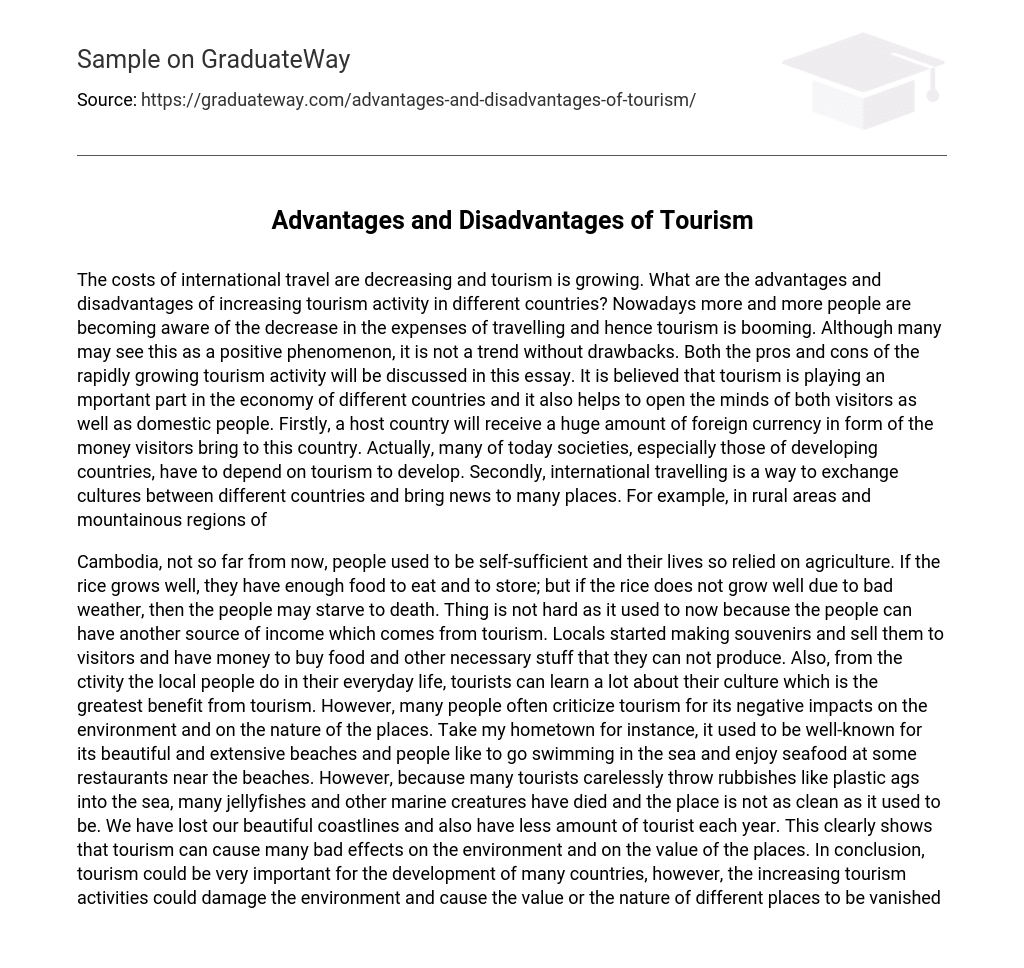Given the decrease in international travel expenses, it is crucial to assess the advantages and disadvantages of the growing tourism activity in different countries.
This essay aims to explore the advantages and disadvantages of the rapid growth in tourism, which is being recognized as a result of reduced travel costs. The prosperous tourism industry acknowledges both positive and negative aspects.
Tourism plays a vital role in the economies of many countries by attracting foreign currency through visitors. This is particularly important for developing nations, which heavily depend on tourism to support their economic development. Additionally, international travel fosters cultural exchange among nations.
Although increased tourism brings benefits, it also has drawbacks that need to be considered. An important concern is the negative impact on the environment due to excessive tourist activity, resulting in pollution and harm to natural habitats. Additionally, cultural commodification is another issue where local traditions may be exploited for financial gain instead of being valued and protected.
Overall, although there are advantages to boosting tourism in various countries like economic expansion and cultural interchange, it is crucial to take into account possible detrimental impacts such as environmental harm and exploitation of indigenous cultures.
Agriculture used to be the main way for self-sufficiency in Cambodia, with the success of the rice crop determining food availability. However, unfavorable weather could lead to crop failure and potential starvation. Nowadays, tourism has emerged as an alternative income source for locals, making life less challenging. Locals create and sell souvenirs to tourists and use the earnings to buy essential items they can’t produce themselves. Additionally, tourists can learn about Cambodian culture by observing daily activities of locals.
Despite its benefits, tourism often faces criticism for its detrimental effects on the environment and natural beauty of destinations. This is evident in my hometown, renowned for its exquisite beaches and delectable seafood offerings. Unfortunately, irresponsible behavior by tourists such as discarding plastic bags into the ocean has resulted in the demise of numerous jellyfish and other marine creatures. Consequently, our beaches have experienced a noticeable decline in cleanliness. As a result, this degradation of the environment has led to a decrease in annual tourist visits.
Insufficient regulation and control of tourism in developing countries like Cambodia can result in both positive and negative consequences.





